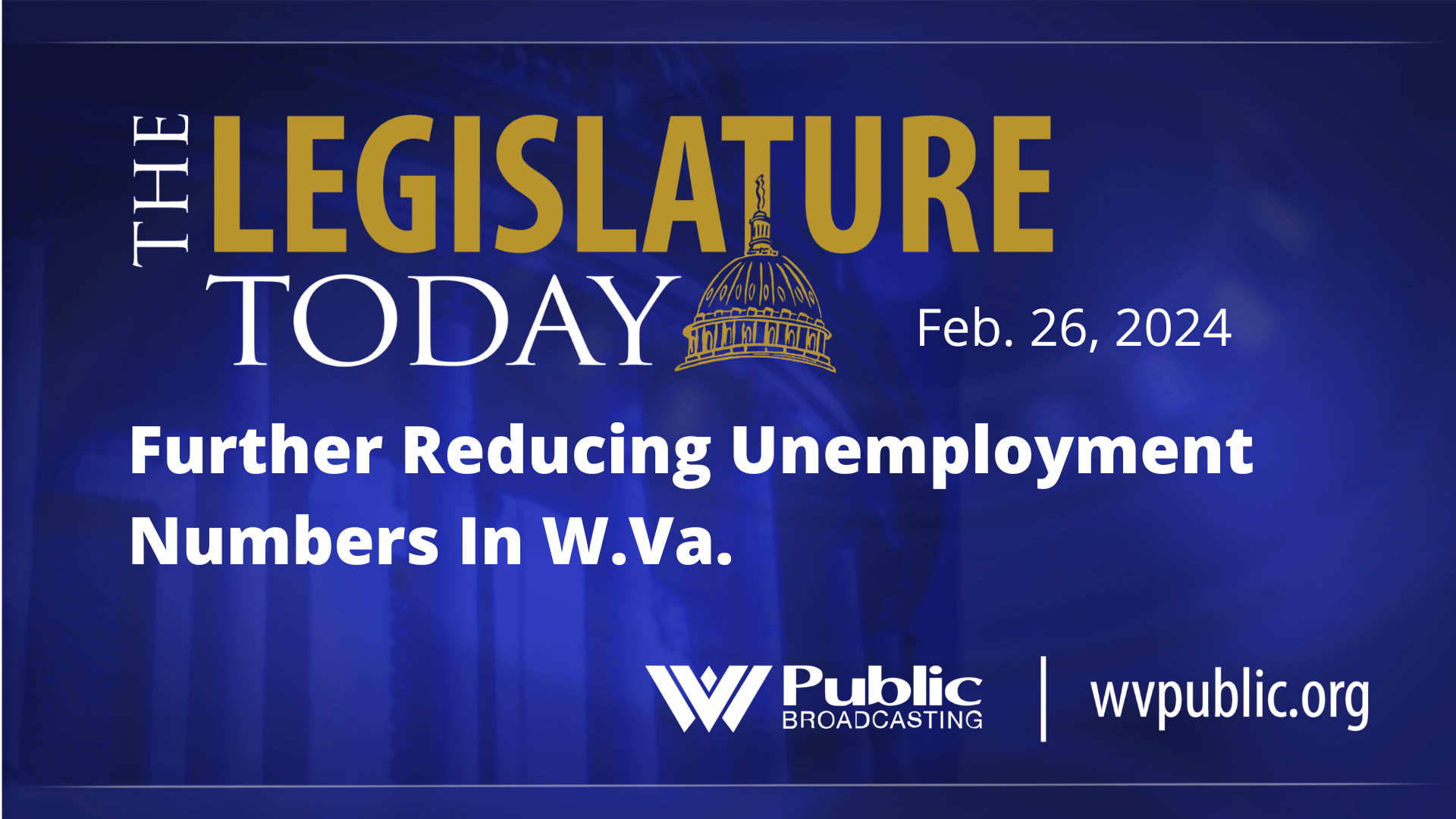On this episode of The Legislature Today, West Virginia, like most of the country, is enjoying record setting low unemployment numbers after the coronavirus pandemic. Briana Heaney sat down with Josh Sword, president of West Virginia’s AFL-CIO, and Del. Clay Riley, R-Harrison, to discuss two bills that would reduce unemployment benefits in the state.
Also, we’re in the final two weeks of the 2024 state legislative session. All bills, except for the budget bill, must be out of their chamber of origin by the end of the day Wednesday to give time to consider the bill. This is called Crossover Day.
In the House Monday, lawmakers passed bills on third reading altering the state’s definition of human trafficking and a separate bill increasing leniency over youth vaccination. Jack Walker has the story.
In the Senate, the chamber passed and advanced bills concerning marital sexual assault and unemployment benefits. Briana Heaney has the story.
Finally, it was Nursing Day at the Capitol. Bob Brunner spoke with nurses about the challenges they face, and he spoke with a leader who runs a retreat for nurses who are burned out.
Having trouble viewing the video below? Click here to watch it on YouTube.
The Legislature Today is West Virginia’s only television/radio simulcast devoted to covering the state’s 60-day regular legislative session.
Watch or listen to new episodes Monday through Friday at 6 p.m. on West Virginia Public Broadcasting.
